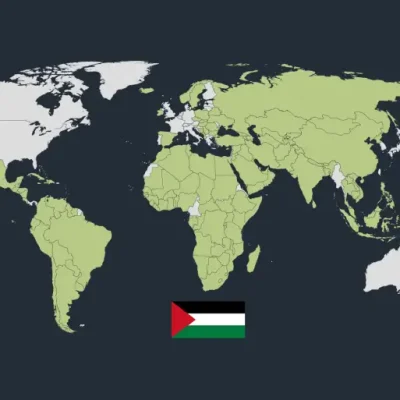Israel’s Economy Faces Severe Strain as Gaza War Drags On

With almost all of the souvenir stores closed, Jerusalem’s Old City’s once-bustling streets now seem shockingly quiet. In Haifa, vendors clean their unsold goods in a flea market empty of buyers. As airlines cancel flights, companies fail, and luxury hotels fight with half-empty rooms, the financial effects of the continuous fighting between Israel and Hamas are becoming more clear-cut.
Israel’s economy is exhibiting indications of strain over 11 months into the battle as the nation presses on with its military attack in Gaza, an operation that remains far from ending and could lead into a more general regional conflict. Trying to reassure the people, Prime Minister Benjamin Netanyahu has said that the economic effects are merely transient. But the terrible conflict, which has already cost hundreds of lives, has seriously harmed Israel’s economy, especially small enterprises, and erased international faith in once-vibrant entrepreneurial center.
Economic Uncertainty and Expanding Costs
Former central bank chief for Israel, Karnit Flug, currently vice president of research for the Jerusalem-based think tank Israel Democracy Institute, emphasized the uncertainty afflicting the economy. “The economy right now is under huge uncertainty, and it’s related to the security situation — how long the war will go on, what the intensity will be and the question of whether there will be further escalation,” she said. The protracted character of the battle has not only taxed Israel’s financial resources but also begged questions about the nation’s capacity for recovery.
Although Israel’s economy has recovered following past wars, this protracted war presents a more major obstacle. The financial load is being added by rebuilding, reimbursed to the families of victims and reserve soldiers, and the large military spending needed to maintain the offensive. The war has also had a significant effect on tourism, an industry that sustains thousands of jobs and small businesses even if it is not the biggest contributor to Israel’s economy.
For example, 45-year-old Israeli tour guide Daniel Jacob returned from six months of reserve duty in April to discover his travel company had collapsed. After twenty years of running his business, he was compelled to close it depending on government subsidies covering barely half of his prewar income. “The toughest thing is that we have no idea when the war will finish,” Jacob grumbled. “If it’s another half-year, I’m not sure how long we’ll be able to last.”
More General Effects on Industry and Trade
The effects of the fight transcend travel. Once a vibrant port for Israeli imports and exports, Haifa has suffered a dramatic drop in activity. Security issues, especially with the Houthi rebels of Yemen endangering ships passing the Suez Canal, have caused many long-distance tankers to avoid Israeli ports. A port official, speaking under anonymity, said that Israeli ports had a 16% decline in shipping in the first half of the year against the same period in 2023.
Starting on October 7, Hamas militants started a surprise attack killing about 1,200 persons and kidnapping 250 captives. The conflict has grown since then, with Israel coping with tens of thousands of Palestinians displaced from its northern and southern borders and regular bombings from Hezbollah fighters in Lebanon. These developments taken together have further rocked the economy since an even more extensive regional conflict seems just around the corner.
Economic Perspectives and Future Challenges
Spending decades counseling Israeli premiers and government departments, economist Jacob Sheinin believes the war’s overall cost might be $120 billion, or 20% of Israel’s GDP. From April to June, Israel saw the most notable economic downturn among its 38 members according to the Organization for Economic Cooperation and Development (OECD). A dramatic change from the previously expected 3% growth rate, the Bank of Israel has lowered its 2024 growth prediction to 1.5%.
Major credit rating agencies like Fitch, S&P, and Moody’s have lowered Israel’s credit rating in response to the continuous conflict, therefore increasing government borrowing costs. Recently declining Israel’s rating from A-plus to A, Fitch cautioned that the confrontation in Gaza would go until 2025 and would cause “significant additional military spending, destruction of infrastructure, and more sustained damage to economic activity and investment.”
Complicating matters further, Israel’s Finance Ministry said that the nation’s deficit now stands at nearly 8% of GDP, much above the 6.6% prediction for 2024. This widening deficit strains the government more and calls for more action, maybe requiring controversial policies including tax hikes or expenditure cuts. But Netanyahu, under pressure to keep his coalition intact, finds himself in a tough spot especially with Finance Minister Bezalel Smotrich calling for the conflict to be carried on until Hamas is clearly vanquished.
Public Opinion and Future Directions
Flug underlined the unsustainable character of the present situation and suggested that the government would finally have to make tough decisions, including reducing expenditure in fields like subsidies to ultra-Orthodox schools, which many consider as excessive. “The public will have a hard time accepting it if the government does not show that the degree of the situation forces them to give up some of the things that are dear to them,” Flug said.
Notwithstanding the difficulties, Smotrich is hopeful about Israel’s economic resiliency and promises to pass a “responsible budget” supporting the war effort while preserving financial discipline and advancing development. On the ground, though, the reality is bleak: 46,000 businesses—mostly small ones—have closed since the war started.
With layoffs and possible wage cuts hanging over even venerable establishments like Jerusalem’s American Colony Hotel, Representing the proprietors of the hotel, Jeremy Berkovitz described the grave circumstances: “We did consider at one time closing for a few months, but of course that would mean dismissing all the personnel. It would have meant letting the gardens we have created over 120 years fallow.
The issue of whether Israel’s economy can bear the continuous strain remains unanswered as the war stretches on. Like many others, Sheinin thinks that ending the conflict is the best approach to steady the economy. He added, though, “if we are stubborn and keep this war going, we will not recover.” Israel’s economy stands on a knife edge; the result of the current conflict will probably determine its course for years to come.




